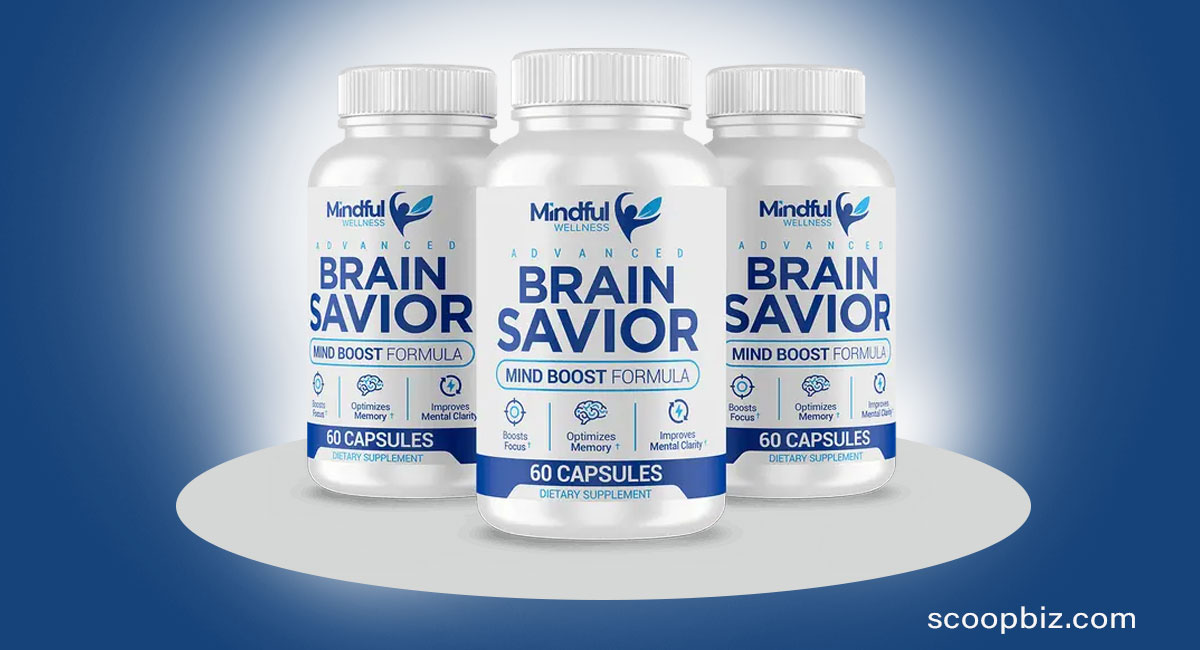

Heads up: Our content is reader-supported. This page includes affiliate links. If you click and purchase, I may receive a small commission at no extra cost to you.
Research has consistently shown that adopting a healthy lifestyle is the most effective prescription for longevity and disease prevention. Surprisingly, it’s not as daunting as it may seem; merely adjusting your diet and exercise routine can significantly reduce stress levels. By approaching this journey without rigid determination or fixation, you can open doors to a more enriching path of self-exploration.
Let’s explore 15 quick tips to help you stay healthy and make a lasting impact.
1.Exercise

Exercise is a vital component of a healthy lifestyle, offering numerous physical and mental benefits. It involves engaging in physical activity to improve strength, flexibility, endurance, and overall fitness. Regular exercise not only helps in maintaining a healthy weight but also reduces the risk of chronic diseases such as heart disease, diabetes, and certain types of cancer.
There are various forms of exercise, including cardiovascular activities like walking, running, cycling, and swimming, which help improve heart health and boost endurance. Strength training exercises, such as lifting weights or using resistance bands, are essential for building muscle mass and increasing metabolism. Flexibility exercises like yoga or stretching improve range of motion and reduce the risk of injury.
The recommended amount of exercise varies depending on factors like age, fitness level, and health status. However, adults should aim for at least 150 minutes of moderate-intensity aerobic activity or 75 minutes of vigorous-intensity activity per week, along with muscle-strengthening exercises on two or more days per week.
Incorporating exercise into your daily routine doesn’t have to be complicated or time-consuming. Simple activities like taking the stairs instead of the elevator, walking or biking instead of driving short distances, and participating in recreational sports or fitness classes can all contribute to meeting your exercise goals.
Consistency is key when it comes to reaping the benefits of exercise. Whether it’s a daily walk, a weekly dance class, or a gym session, finding activities you enjoy and sticking to them is crucial for long-term success. Additionally, listening to your body, staying hydrated, and warming up before exercise are important for preventing injury.
2.Consume A Balanced Diet

Consuming a balanced diet is fundamental to maintaining good health and well-being. A balanced diet provides the body with the necessary nutrients, vitamins, and minerals it needs to function optimally. It involves eating a variety of foods from different food groups in appropriate proportions.
A balanced diet typically includes a combination of fruits, vegetables, whole grains, lean proteins, and healthy fats. Each of these food groups contributes essential nutrients that support various bodily functions:
- Fruits and vegetables: Rich in vitamins, minerals, fiber, and antioxidants, fruits and vegetables help boost immunity, promote digestive health, and reduce the risk of chronic diseases such as heart disease and cancer.
- Whole grains: Whole grains like brown rice, quinoa, oats, and whole wheat provide complex carbohydrates, fiber, vitamins, and minerals. They help regulate blood sugar levels, promote satiety, and support digestive health.
- Lean proteins: Protein is essential for building and repairing tissues, maintaining muscle mass, and supporting immune function. Lean protein sources include poultry, fish, eggs, tofu, legumes, and low-fat dairy products.
- Healthy fats: Healthy fats, such as those found in nuts, seeds, avocados, and olive oil, are crucial for brain health, hormone production, and nutrient absorption. They also help reduce inflammation and lower the risk of heart disease.
In addition to including these food groups in your diet, it’s important to pay attention to portion sizes and overall calorie intake. Eating a balanced diet also means moderating the consumption of processed foods, sugary snacks, and unhealthy fats, which can contribute to weight gain and increase the risk of chronic diseases.
Balancing your meals and snacks throughout the day ensures that you provide your body with a steady supply of nutrients and energy. Aim to eat a variety of foods from different sources to maximize nutrient intake and promote overall health.
Ultimately, consuming a balanced diet not only supports physical health but also enhances mental well-being, energy levels, and overall quality of life. By making informed food choices and prioritizing nutrient-rich foods, you can nourish your body and achieve optimal health and vitality.
3.Drink Enough Water

Drinking enough water is crucial for maintaining overall health and well-being. Water is essential for various bodily functions, including regulating body temperature, lubricating joints, transporting nutrients, and removing waste products. Adequate hydration is key to staying energized, focused, and functioning optimally throughout the day.
The human body is composed of approximately 60% water, and every cell, tissue, and organ relies on proper hydration to function properly. When you don’t drink enough water, you can become dehydrated, which can lead to a range of symptoms, including fatigue, headaches, dizziness, and difficulty concentrating.
The amount of water a person needs varies depending on factors such as age, gender, weight, activity level, and environmental conditions. However, a general guideline is to aim for about 8 glasses, or 64 ounces, of water per day. However, individual needs may vary, and it’s essential to listen to your body and drink when you’re thirsty.
In addition to drinking plain water, you can also stay hydrated by consuming other fluids, such as herbal tea, fruit-infused water, and broths. Fruits and vegetables with high water content, such as watermelon, cucumber, and oranges, can also contribute to your daily fluid intake.
To ensure you’re drinking enough water throughout the day, consider the following tips:
- Carry a reusable water bottle with you and sip on water regularly, especially during and after physical activity.
- Drink a glass of water first thing in the morning to jumpstart your hydration for the day.
- Set reminders on your phone or use a water tracking app to monitor your water intake and stay on track with your hydration goals.
- Drink water with meals to aid in digestion and help you feel full, which can prevent overeating.
- Pay attention to signs of dehydration, such as thirst, dry mouth, dark urine, and fatigue, and drink water accordingly.
Be mindful of factors that can increase your need for water, such as hot weather, exercise, illness, and pregnancy, and adjust your fluid intake accordingly.
By making hydration a priority and drinking enough water throughout the day, you can support your overall health, boost your energy levels, and feel your best every day.
4.Meditate

Meditation is a practice that involves focusing your mind and eliminating distractions to achieve a state of deep relaxation and heightened awareness. It has been practiced for centuries as a means of promoting mental clarity, emotional well-being, and spiritual growth. Incorporating meditation into your daily routine can offer a wide range of benefits for both your mind and body.
During meditation, individuals typically sit quietly in a comfortable position and focus their attention on a specific object, word, or breath. The goal is to cultivate a sense of mindfulness and inner peace by observing thoughts and sensations without judgment or attachment.
Regular meditation practice has been associated with numerous health benefits, including:
- Stress Reduction: Meditation promotes relaxation and helps lower levels of cortisol, the body’s primary stress hormone. By calming the mind and body, meditation can reduce feelings of anxiety, tension, and overwhelm.
- Improved Concentration: Meditation enhances focus and attention by training the mind to stay present and engaged in the present moment. With regular practice, individuals often experience improved cognitive function, memory, and productivity.
- Emotional Balance: Meditation cultivates emotional resilience and equanimity by increasing awareness of thoughts and feelings. By observing emotions without reacting impulsively, individuals can develop greater emotional intelligence and regulation.
- Enhanced Sleep Quality: Meditation can improve sleep quality and duration by promoting relaxation and reducing insomnia symptoms. By calming the mind before bedtime, individuals may experience deeper, more restful sleep.
- Pain Management: Meditation has been shown to reduce the perception of pain and improve pain tolerance by altering brain pathways associated with pain processing. It can complement conventional pain management strategies and offer relief for chronic pain conditions.
- Lower Blood Pressure: Regular meditation practice has been linked to reductions in blood pressure and hypertension risk. By inducing relaxation and reducing stress, meditation can support cardiovascular health and reduce the risk of heart disease.
To incorporate meditation into your daily routine, consider starting with short sessions of 5-10 minutes and gradually increasing the duration as you become more comfortable. Find a quiet, comfortable space where you won’t be disturbed, and experiment with different meditation techniques, such as mindfulness meditation, loving-kindness meditation, or guided visualization.
Whether you choose to meditate in the morning to set a positive tone for the day or in the evening to unwind and relax before bed, regular practice can have profound effects on your overall well-being. By making meditation a consistent part of your routine, you can cultivate greater peace, clarity, and resilience in your life.
5.Regularly Visit The Doctor

Regular visits to the doctor are essential for maintaining optimal health and preventing potential medical issues. These visits allow healthcare professionals to monitor your overall well-being, identify any health concerns early on, and provide personalized guidance and treatment as needed.
Reasons why regular check-ups with your doctor are crucial:
- Preventive Care: Regular check-ups enable healthcare providers to conduct routine screenings and assessments to detect potential health problems before they escalate. These screenings may include blood pressure checks, cholesterol tests, cancer screenings, and vaccinations, among others.
- Early Detection: Many medical conditions, such as high blood pressure, diabetes, and certain cancers, may not present noticeable symptoms in the early stages. Regular visits to the doctor allow for early detection and intervention, increasing the likelihood of successful treatment and better health outcomes.
- Chronic Disease Management: For individuals with chronic health conditions, such as diabetes, asthma, or heart disease, regular monitoring and management are crucial for maintaining optimal health and preventing complications. Healthcare providers can adjust treatment plans, provide education, and offer support to help individuals manage their conditions effectively.
- Medication Management: Regular visits to the doctor allow healthcare providers to review and adjust medication regimens as needed. They can monitor medication efficacy, address any side effects or concerns, and ensure that prescriptions are appropriate and safe for the individual’s health needs.
- Health Promotion and Education: Doctors can provide valuable health promotion and education during routine visits, including guidance on nutrition, exercise, stress management, and lifestyle modifications to improve overall health and well-being. They can also address any questions or concerns individuals may have about their health.
- Personalized Care: Each person’s health needs and risks are unique, and regular visits to the doctor allow for personalized care tailored to individual health goals, preferences, and risk factors. Healthcare providers can develop comprehensive care plans and provide ongoing support to help individuals achieve and maintain their health goals.
Overall, regular visits to the doctor play a crucial role in promoting optimal health, preventing disease, and ensuring that individuals receive the necessary care and support to live healthy, fulfilling lives. It’s essential to prioritize preventive care and schedule routine check-ups with your healthcare provider based on their recommendations and guidelines.
6. Maintain A Healthy Weight

Maintaining a healthy weight is essential for overall well-being and reducing the risk of chronic diseases. It involves achieving and sustaining a body weight that is in proportion to height and body composition. A healthy weight is typically determined by calculating body mass index (BMI) and considering factors such as age, gender, and muscle mass.
There are numerous benefits to maintaining a healthy weight, including improved cardiovascular health, reduced risk of type 2 diabetes, lower blood pressure, and enhanced mobility and flexibility. Additionally, maintaining a healthy weight can boost self-esteem, energy levels, and overall quality of life.
Achieving and maintaining a healthy weight involves adopting a balanced diet, engaging in regular physical activity, getting enough sleep, managing stress, and avoiding unhealthy behaviors such as smoking and excessive alcohol consumption. It’s essential to focus on long-term lifestyle changes rather than quick fixes or extreme dieting, as sustainable weight management is key to long-term success.
7.Set Some Goals

Setting goals is essential for personal growth, achievement, and overall well-being. By establishing clear and measurable objectives, individuals can create a roadmap for success and stay focused on their aspirations. Whether it’s improving physical fitness, advancing in a career, or cultivating better relationships, setting goals provides direction and motivation to strive for meaningful outcomes.
When setting goals, it’s important to make them specific, measurable, achievable, relevant, and time-bound (SMART). Specific goals outline precisely what you want to accomplish, while measurable goals allow you to track progress and celebrate milestones along the way. Achievable goals are realistic and within reach, considering your resources and capabilities. Relevant goals align with your values, priorities, and long-term aspirations, while time-bound goals have a defined deadline or timeframe for completion.
Setting goals can help individuals clarify their priorities, overcome obstacles, and stay committed to personal and professional development. Whether short-term or long-term, goals provide a sense of purpose and direction, motivating individuals to take action and pursue their dreams. By setting goals that challenge and inspire growth, individuals can unlock their full potential and create a life filled with fulfillment, satisfaction, and success.
8.Get a good night’s sleep

Getting a good night’s sleep is essential for overall health and well-being. During sleep, the body undergoes essential processes that promote physical and mental restoration, including tissue repair, hormone regulation, and memory consolidation. Adequate sleep is associated with numerous health benefits, including improved cognitive function, mood regulation, immune function, and cardiovascular health.
To ensure a restful night’s sleep, it’s essential to prioritize sleep hygiene practices. This includes establishing a consistent sleep schedule, creating a relaxing bedtime routine, and optimizing your sleep environment. Avoiding stimulants like caffeine and electronics before bedtime, maintaining a comfortable room temperature, and minimizing noise and light disturbances can also promote better sleep quality.
Additionally, practicing relaxation techniques such as deep breathing, meditation, or gentle stretching before bed can help calm the mind and prepare the body for sleep. Creating a comfortable and supportive sleep environment, including investing in a quality mattress and pillows, can also contribute to better sleep quality.
9. Avoid alcohol consumption

Avoiding alcohol consumption is a key aspect of maintaining overall health and well-being. While moderate alcohol intake may be acceptable for some individuals, excessive or regular alcohol consumption can have detrimental effects on physical, mental, and emotional health. Alcohol is a central nervous system depressant that can impair judgment, coordination, and cognitive function, increasing the risk of accidents, injuries, and dangerous behaviors. Long-term alcohol abuse can lead to serious health consequences, including liver disease, heart disease, digestive issues, and neurological disorders. Additionally, alcohol consumption is linked to an increased risk of certain cancers, including breast, liver, and esophageal cancer. By abstaining from alcohol, individuals can protect their physical health, improve mental clarity and emotional well-being, and reduce the risk of chronic disease. Choosing alternative beverages and activities that promote relaxation and socialization without relying on alcohol can support a healthier lifestyle and contribute to long-term wellness.
10. Stay away from tobacco

Staying away from tobacco is paramount for safeguarding both physical health and overall well-being. Tobacco use, including smoking cigarettes and chewing tobacco, poses significant health risks and is a leading cause of preventable diseases and premature death worldwide.
Tobacco contains numerous harmful substances, including nicotine, tar, and carbon monoxide, which can damage the lungs, heart, and blood vessels. Smoking is linked to a wide range of serious health conditions, including lung cancer, heart disease, stroke, respiratory infections, and chronic obstructive pulmonary disease (COPD).
Moreover, exposure to secondhand smoke can also have detrimental effects on non-smokers, increasing their risk of developing similar health issues. Additionally, tobacco use is associated with adverse effects on oral health, including gum disease, tooth decay, and oral cancer.
By staying away from tobacco, individuals can significantly reduce their risk of developing these serious health conditions and enjoy a higher quality of life. Quitting smoking or avoiding tobacco altogether can lead to immediate and long-term health benefits, including improved lung function, reduced risk of heart disease, and increased life expectancy.
Choosing a tobacco-free lifestyle not only benefits individual health but also promotes a healthier environment for everyone. It’s essential to prioritize tobacco cessation efforts and seek support and resources to quit smoking or avoid tobacco use altogether. By making this commitment, individuals can protect their health and well-being, as well as that of their loved ones.
11. Eat home-cooked meals

Eating home-cooked meals offers numerous benefits for overall health and well-being. Unlike restaurant or processed foods, home-cooked meals give you full control over the ingredients, portion sizes, and cooking methods, allowing you to make healthier choices. By preparing meals at home, you can incorporate a variety of nutrient-rich foods such as fruits, vegetables, lean proteins, and whole grains, while minimizing the use of unhealthy additives like excessive salt, sugar, and unhealthy fats. Additionally, cooking at home promotes mindful eating and fosters a stronger connection to the food you consume. It encourages family bonding and provides an opportunity to teach essential cooking skills to children. Moreover, eating home-cooked meals is often more cost-effective than dining out, helping you save money while prioritizing your health. Overall, making the effort to cook meals at home can lead to better nutrition, improved health outcomes, and a greater appreciation for wholesome, homemade food.
12. Snack healthy

Snacking healthy is an integral part of maintaining a balanced diet and supporting overall well-being. Opting for nutritious snacks can provide sustained energy, curb hunger between meals, and contribute essential nutrients to your diet. Choose snacks that are rich in fiber, protein, healthy fats, and vitamins and minerals, while minimizing added sugars, salt, and processed ingredients.
Healthy snack options include fresh fruits and vegetables, such as apple slices with almond butter, carrot sticks with hummus, or berries with Greek yogurt. Nuts and seeds are excellent sources of healthy fats and protein, making them satisfying and nutritious snack choices. Whole-grain options like whole-grain crackers, rice cakes, or popcorn provide fiber and complex carbohydrates for lasting energy.
Incorporating healthy snacks into your daily routine can help you stay satisfied, maintain stable blood sugar levels, and prevent overeating at meal times. Be mindful of portion sizes and listen to your body’s hunger cues when snacking. With a little planning and preparation, snacking healthy can be delicious, convenient, and beneficial for your health and well-being.
13. Don’t forget about your teeth

Regular dental care is vital for maintaining overall health and well-being. Neglecting oral hygiene can lead to various dental issues, including cavities, gum disease, and tooth loss. It’s essential to practice good oral hygiene habits, such as brushing and flossing daily, to prevent plaque buildup and maintain healthy teeth and gums. Additionally, scheduling regular dental check-ups and cleanings with a dentist is crucial for early detection and treatment of dental problems. Dentists can identify issues like cavities, gum disease, and oral cancer in their early stages, when they are easier to treat. They can also provide professional cleanings to remove plaque and tartar buildup, which can help prevent tooth decay and gum disease. By prioritizing dental care and staying proactive about oral health, individuals can enjoy a brighter smile, better overall health, and reduced risk of dental problems in the long run.
14. Take some time for yourself and meet people

Taking time for yourself and engaging with others are both important aspects of maintaining mental and emotional well-being. Allocating time for self-care allows you to recharge, reduce stress, and cultivate a sense of inner peace and fulfillment. Whether it’s indulging in hobbies, practicing mindfulness, or simply enjoying quiet moments alone, carving out personal time is essential for self-reflection and rejuvenation.
Equally important is the act of socializing and connecting with others. Human beings are social creatures, and meaningful interactions with friends, family, and peers provide a sense of belonging, support, and joy. Whether it’s having a heartfelt conversation, sharing laughter, or engaging in group activities, spending time with others fosters positive relationships and strengthens social bonds.
Balancing personal time with social interactions is key to overall well-being. By nurturing both aspects of your life, you can cultivate a healthy balance, enhance your sense of fulfillment, and build meaningful connections with yourself and others. Whether it’s scheduling regular “me time” or making time for social gatherings, prioritizing both self-care and socialization can lead to a happier, more fulfilling life.
15. Stay happy

Staying happy is not just a fleeting emotion; it’s a vital aspect of overall well-being that significantly impacts physical and mental health. Cultivating happiness involves adopting positive habits, nurturing meaningful relationships, and prioritizing self-care. Engaging in activities that bring joy, such as hobbies, spending time with loved ones, or practicing gratitude, can boost mood and resilience in the face of life’s challenges.
Research shows that happiness is associated with numerous health benefits, including reduced stress levels, improved immune function, and lower rates of chronic disease. Additionally, happy individuals tend to have better coping skills, stronger social support networks, and increased life satisfaction.
To foster happiness, it’s essential to prioritize self-awareness and self-care, identify personal values and goals, and cultivate a positive mindset. This may involve practicing mindfulness, setting boundaries, practicing forgiveness, and embracing self-compassion.
Ultimately, staying happy is a journey that requires intention, effort, and a commitment to nurturing positivity in all aspects of life. By focusing on what brings joy and fulfillment, individuals can enhance their overall quality of life and thrive in the face of adversity.
Conclusion
In conclusion, maintaining a healthy lifestyle encompasses a holistic approach that addresses various aspects of well-being, including physical health, mental well-being, and emotional resilience. By incorporating regular exercise, balanced nutrition, hydration, meditation, and proactive healthcare into our daily routines, we can cultivate optimal health and vitality.
Incorporating these practices into our daily lives may require dedication, effort, and perseverance, but the rewards are invaluable—a healthier, happier, and more fulfilling life. Let us embark on this journey towards optimal health and well-being, one step at a time, knowing that our commitment to self-care will enrich our lives and those around us.






